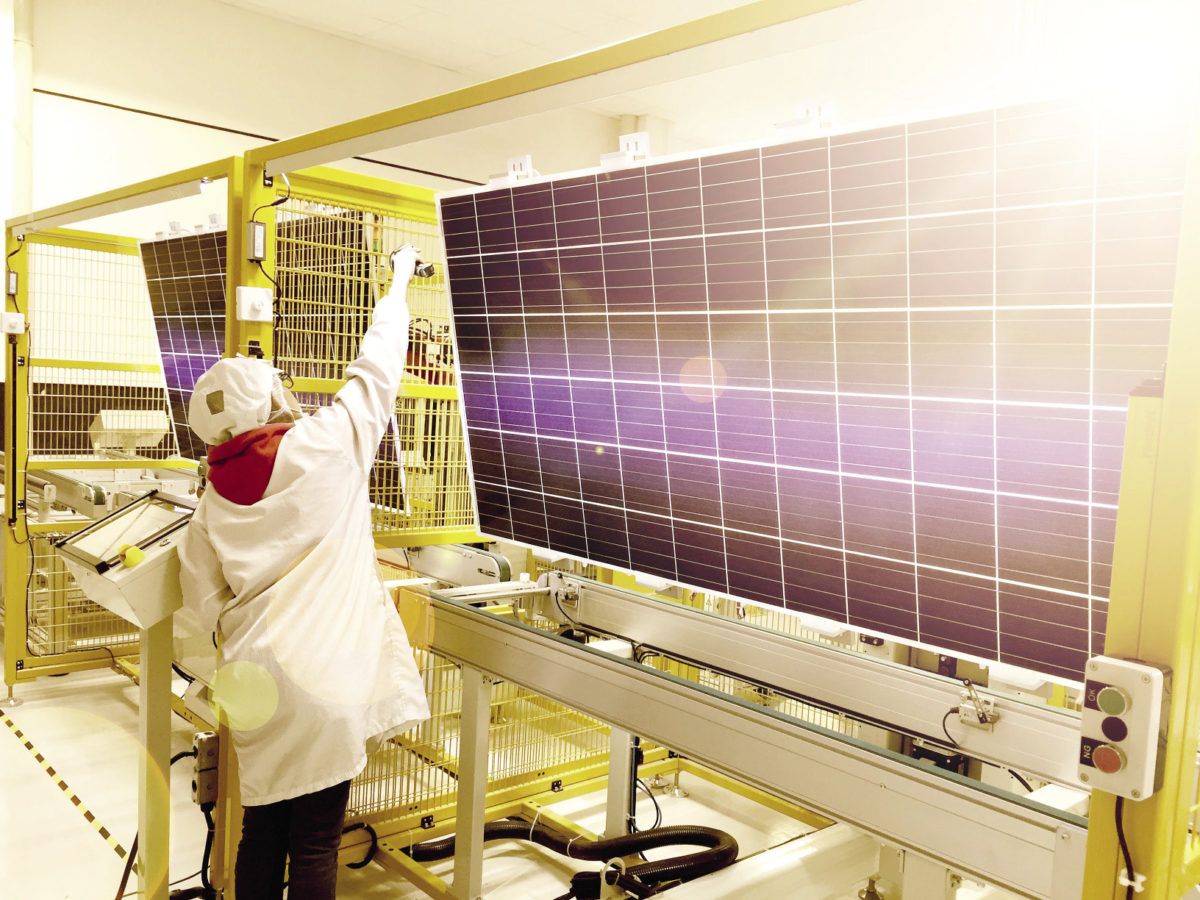Earlier this month, Solaria, a high-efficiency solar panel manufacturer based in California, filed suit against Canadian Solar, a solar module builder headquartered in China, in Federal District Court for the Northern District of California.
Canadian Solar “believes that the claims in Solaria’s complaint are meritless and unfounded. Canadian Solar is working closely with its legal counsel and will vigorously defend against the claims made by Solaria.”
The suit claims that Canadian Solar infringes Solaria’s U.S. patent concerning a process for separating photovoltaic strips from silicon solar cells for use in more-efficient tiled or “shingled” solar panels.
Solaria asserts in the lawsuit that “it first introduced Canadian Solar to its high-efficiency, high-density module (HDM) technology in 2014 when representatives of Canadian Solar evaluated Solaria’s next-generation shingling technology for a potential licensing deal.”
In its first public comment since the suit was filed, Canadian Solar acknowledged the complaint that cited “a portion of the process for making Canadian Solar’s shingled-cell solar modules (HiDM High Density Mono PERC Modules).”
As pv magazine has reported, this is not the first time Solaria has been involved in lawsuits related to its technology. In 2018, Solaria filed suit against South Korea’s Genesem for making use of Solaria’s patents outside of agreed-upon terms. In 2017, Solaria resolved a legal dispute with GCL-Poly of China involving allegations of stolen trade secrets for shingle-cell solar technology. The suit was settled under a nondisclosure agreement. Solaria also sued Jiangsu Seaphim Solar System and Suzhou Autoway System for the same reasons as GCL Poly.
Canadian Solar has noted that it takes intellectual property rights seriously, as it has continually invested in R&D and has secured 95 patents in various countries for its shingled-cell designs and inventions.
This content is protected by copyright and may not be reused. If you want to cooperate with us and would like to reuse some of our content, please contact: editors@pv-magazine.com.




By submitting this form you agree to pv magazine using your data for the purposes of publishing your comment.
Your personal data will only be disclosed or otherwise transmitted to third parties for the purposes of spam filtering or if this is necessary for technical maintenance of the website. Any other transfer to third parties will not take place unless this is justified on the basis of applicable data protection regulations or if pv magazine is legally obliged to do so.
You may revoke this consent at any time with effect for the future, in which case your personal data will be deleted immediately. Otherwise, your data will be deleted if pv magazine has processed your request or the purpose of data storage is fulfilled.
Further information on data privacy can be found in our Data Protection Policy.